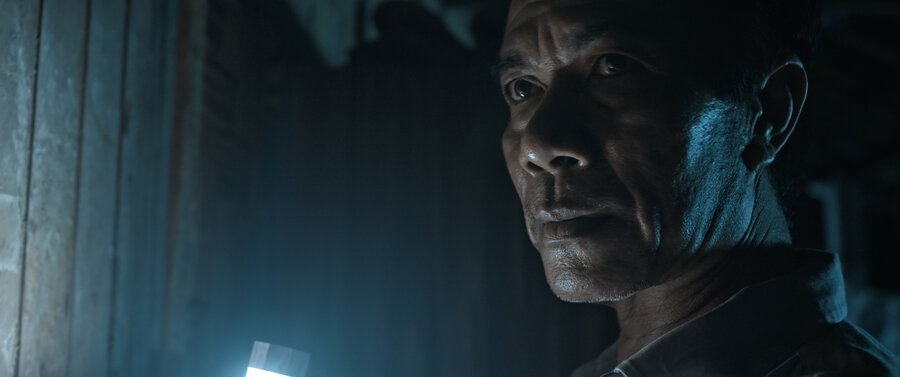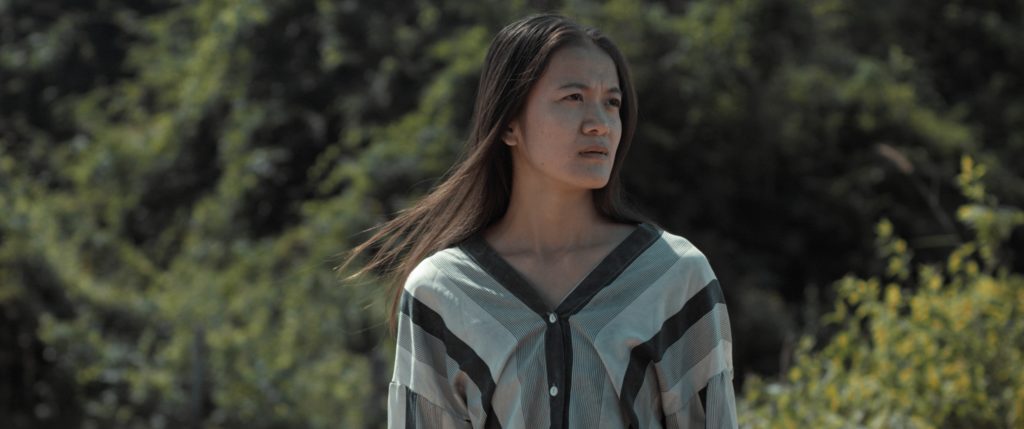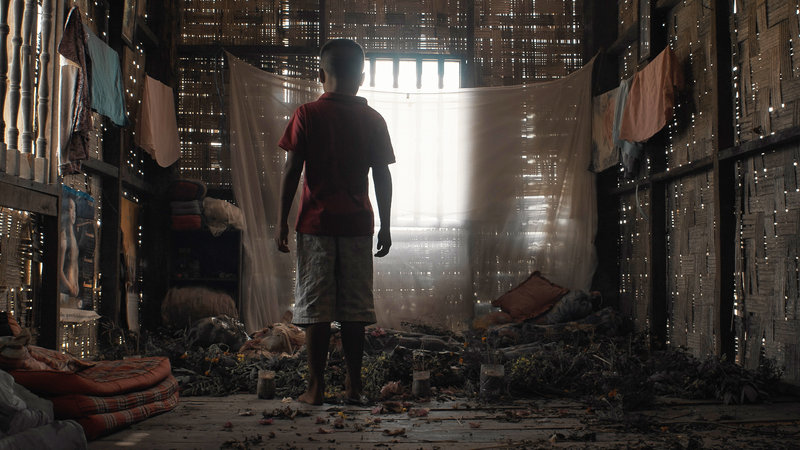
With its sunlit, rural Laotian setting, a series of enigmatic ghosts and intimations of alternate realities, The Long Walk already has a lot of elements and, dare we say, a stockpile of kudos made to draw many viewers to its flame. Add to this that it’s directed by Mattie Do, the much-feted first Laotian female horror director, and it becomes increasingly tough to call any of this into question. But – for all its quiet visual flair and consistently taciturn performances – narrative substance here is increasingly hard to glean, even debatable. If you’re happy to turn your gaze to the muzzy Laotian sun and ruminate on the film’s sadness and symbolism, then fine; this will be more than satisfactory. Other audience members will perhaps struggle, because the narrative strands intended to convey, or at least accompany the more atmospheric aspects of the film begin to knot and fray to the extent that they’re barely there at all. And, at two hours’ duration, this is a distinct problem.
Beginning on the outskirts of a Laos village, an older man – only ever referred to as such in the credits – is digging an old bicycle out of the jungle undergrowth, seemingly to break it up for parts; poverty is one of the clearest and most consistent themes here. It seems that this man is what we’d probably call a medium, but there’s a bit more to it than that; he has another calling, assisting the spirits of unhappy young women to ‘move on’ (which with different handling could have made Yannawoutthi Chanthalungsy’s character very sinister indeed). When an old woman goes missing, government officials take the unusual step of asking him directly if he can help them in their enquiries; he demurs, but when her young daughter returns from the city to keep up the search, he begrudgingly says he’ll help. Add to this that a spectral young woman has, apparently, been mutely accompanying him for the past fifty years, and it’s clear that the supernatural is a fact of life for this man.

In parallel, we meet other characters – namely a poor farming family, where one day the young son (Por Silatsa) is sent from his mother’s stall to help his father work their land. En route, the boy encounters a dying young woman – the same young woman who walks with the older man – and they strike up an equally-mute friendship. It appears that the young boy and the old man are, if not precisely one and the same, occupying a close enough set of timelines that they are soon able to interact with one another, and that their experiences significantly overlap. Observing the boy’s plight as his mother becomes progressively more ill triggers unhappy memories in the older man, these being frequently conveyed to the audience by a close focus on specific items, things which exist in both times and, by-the-by, offer information on the characters themselves. But any expectation that all the secrets will eventually bob to the surface? That isn’t a priority here. Writer and Mattie Do frequent collaborator Christopher Larsen has very deliberately set his jaw against any of that.
At its best, The Long Walk has some gently, deliberately uneasy moments. It’s beautifully shot, lit, and peopled with actors who do their very best to flesh out a careful, minimal script, often very successfully, even if this hinges heavily on multiple brooding, taciturn moments of silence. Where it is less successful, it all feels achingly protracted. As an example of this, the film has elected for an oddly disjointed style where its edits break the plot into disparate chunks. This happens from the very earliest scenes, so it isn’t far into the film before the viewing experience is a disjointed one. Where any story tries to take in aspects of folkloric belief, this is even more challenging; you are held at a double distance from events on screen, or else numbed by the almost imperceptible tread forwards, accompanied by flashbacks (maybe), ghosts and visions. It all feels both busy, and diffuse.
Bafflingly, at least to this reviewer, the film also offers that very fashionable kind of low-key sci-fi which is a) almost negligible, and b) a visual tic at best, which doesn’t seemingly offer a great deal to the plot except to signpost a deliberate loosening of conventional sense. The man has an apparently archaic ‘chip’ under his skin, which essentially means that what he’d use his mobile for, he uses his forearm for. Aside from a couple of other characters peering momentarily at a better version of this tech embedded in their own forearms, and some hints at a technological world beyond the village limits, that’s it. Interesting, vital, valid? Or another spasm-inducing nod to a fashionable visual motif? It’s everywhere these days, and so, so rarely contributes anything much. Likewise, the film’s repeated use of a ghostly ‘sigh’ to signpost that something paranormal, or heavy, or both is around the corner begins to feel awfully formulaic. And yet, even with the use of this little hook, characters, places and events meld together, with things becoming so languid that even its beloved human suffering becomes flat. This may indeed be a tantalising and heartfelt tale to some, but all in all, The Long Walk ultimately feels like just that, a long trudge somewhere, and not much more.
The Long Walk (2019) will be released on 28th February 2022.
